Chloe D’Souza has never been one to shy away from a challenge.
The first in her family to be accepted into university, the Wilman Noongar woman from Perth made the last-minute decision to study law sensing an opportunity to “drive change in the space of Indigenous affairs”.
Five years after graduating, she remains vocal about her passion for the rights of Aboriginal and Torres Strait Islander peoples, hoping to one day champion them at the highest level.
“I’ve always watched what our ministers for Indigenous affairs have done at a state and national level,” the 25-year-old says. “And I think I could do a really good job.
“Everything I am doing at the moment is working towards that goal.”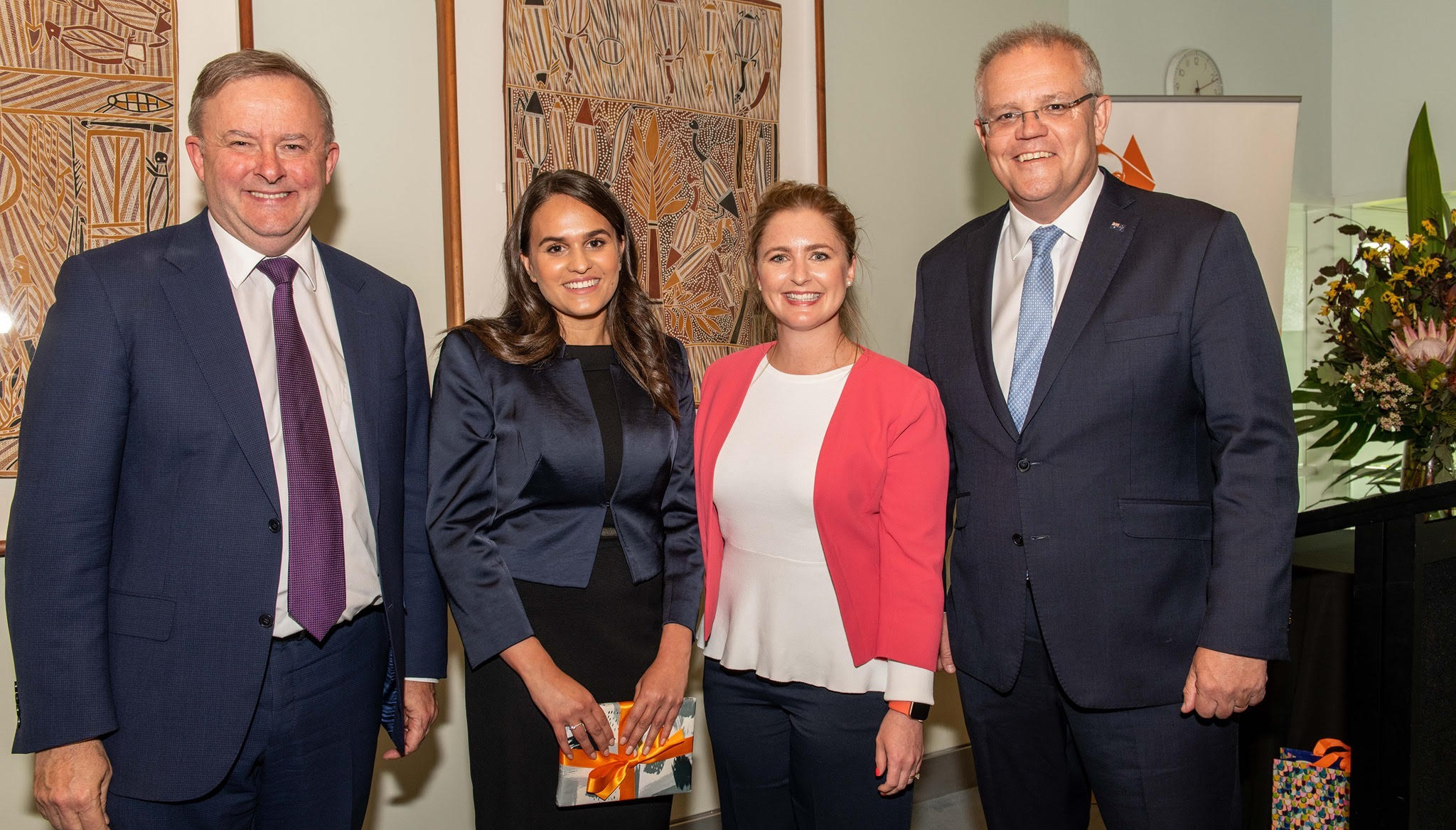 Ms D’Souza was admitted to the Supreme Court of WA as a legal practitioner and accepted into the Masters of Laws program at Harvard University in Massachusetts last year, receiving funding through the inaugural Bob Hawke John Monash Scholarship which supports Australians to study internationally.
Ms D’Souza was admitted to the Supreme Court of WA as a legal practitioner and accepted into the Masters of Laws program at Harvard University in Massachusetts last year, receiving funding through the inaugural Bob Hawke John Monash Scholarship which supports Australians to study internationally.

Ms D’Souza was awarded a scholarship to study at Harvard. Source: johnmonash.com
Though she had initially planned to start in the US in August, she chose to defer for a year as a result of the coronavirus pandemic, rather than study online.
And while it might seem strange for someone who wants to improve the rights of Indigenous Australians to seek an education in another country, Ms D’Souza says it’s about learning from the best of the best and bringing that knowledge and skill back home.
“The whole reason I’m doing an LLM in the US rather than Australia is the ability to network with all of these amazing people who have gone to Harvard and then gone on to make monumental change in America,” she says.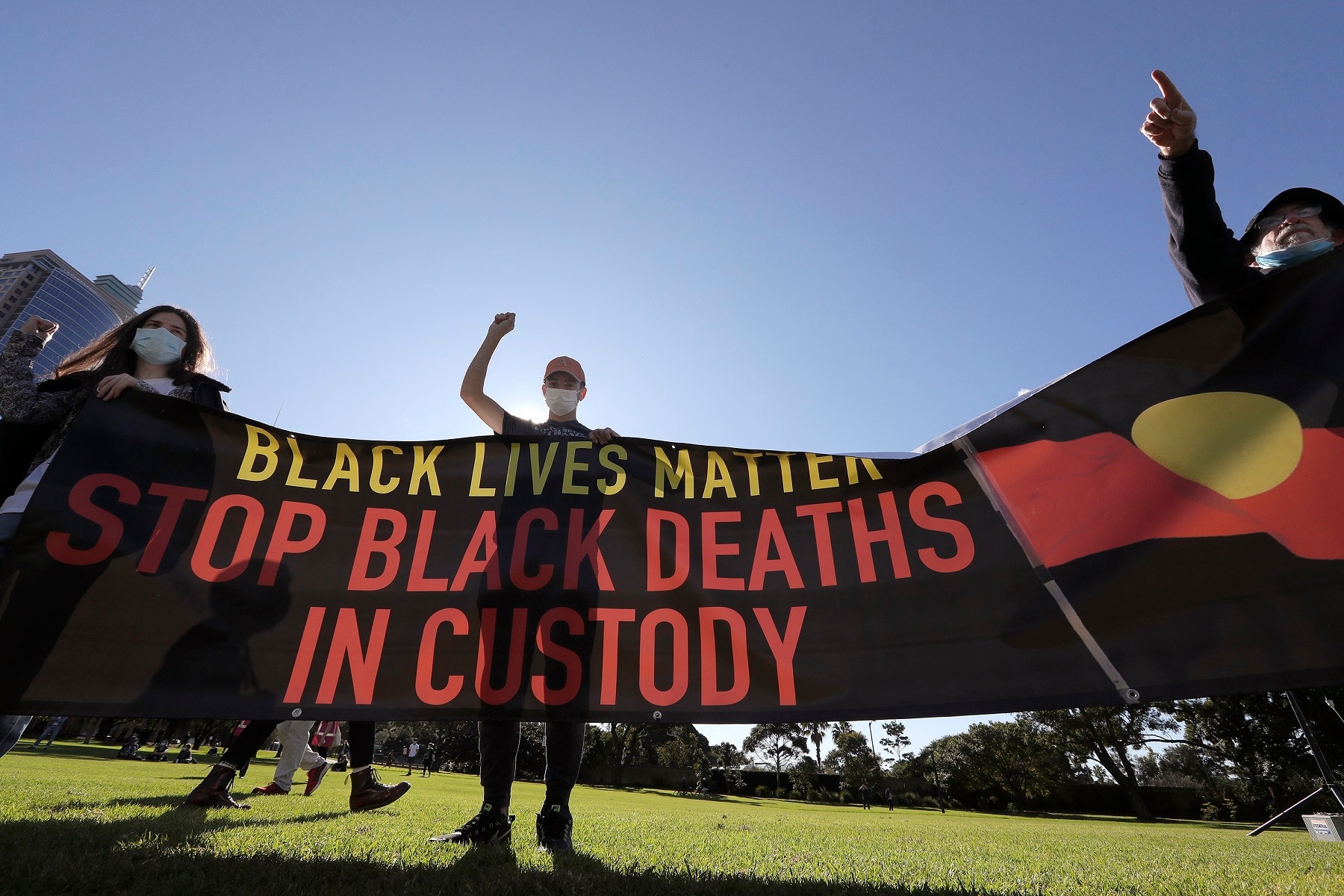 Her decision to study in the US came at a pivotal moment for race relations and Ms D’Souza reflects on how the emergence of the Black Lives Matter movement overseas has helped spark conversations about change in Australia.
Her decision to study in the US came at a pivotal moment for race relations and Ms D’Souza reflects on how the emergence of the Black Lives Matter movement overseas has helped spark conversations about change in Australia.

A Black Lives Matter demonstration in Sydney last year. Source: AP
“It’s really important to recognise that police brutality does occur here in Australia,” she says.
It’s really important to recognise that police brutality does occur here in Australia.
But, she notes, solidarity protests that have been held this year in Australia haven’t led to violence.
“I think that’s a reflection of our leaders and what we’re doing in the space already. And it’s drawing attention to the fact that we can change how people treat Indigenous Australians before it’s too late.”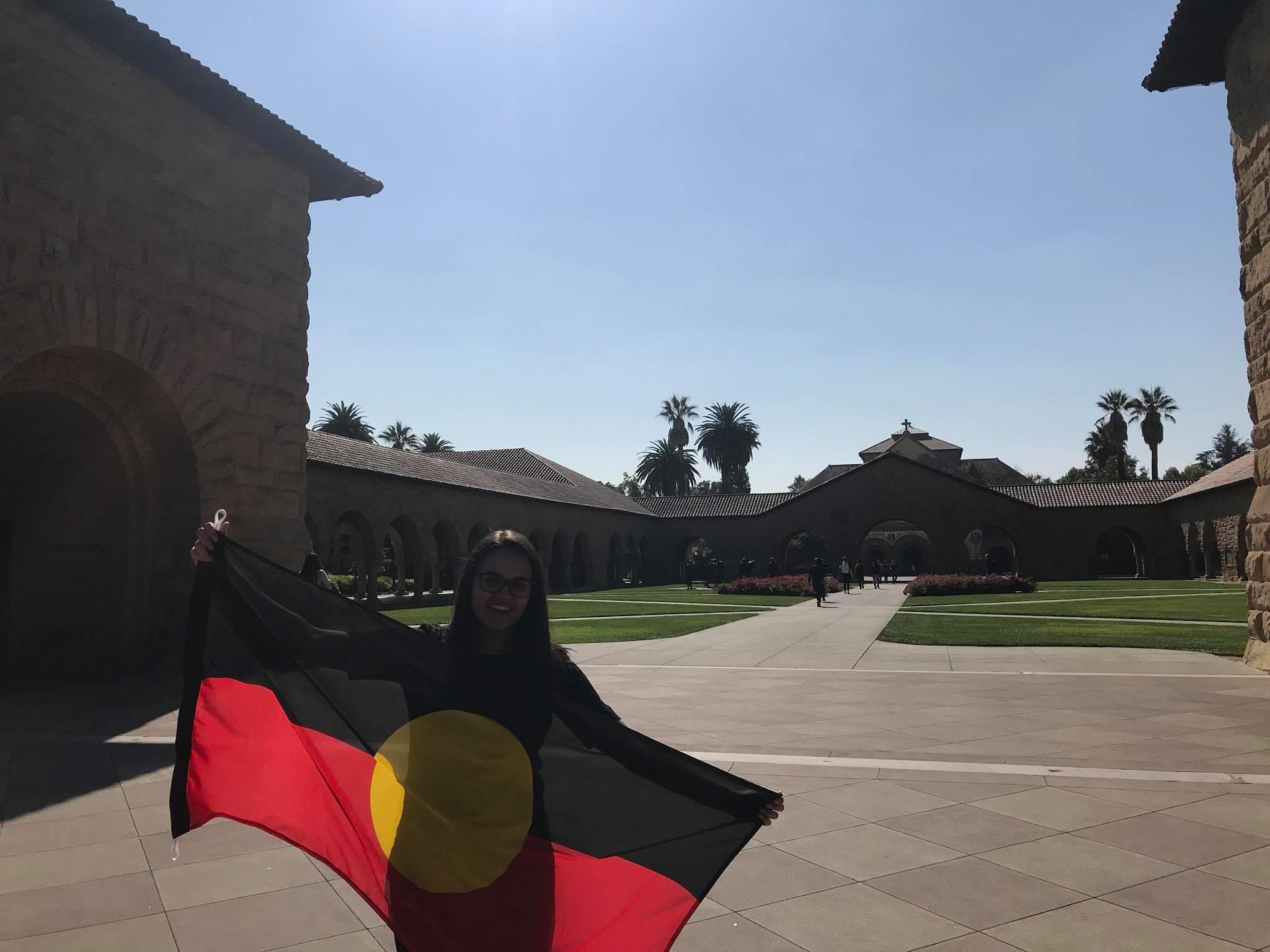 The Harvard course is flexible and Ms D’Souza has chosen for her studies to focus on social justice and human rights. Her vision for policy reform is informed by her own work with the Law Society of WA and local Indigenous communities.
The Harvard course is flexible and Ms D’Souza has chosen for her studies to focus on social justice and human rights. Her vision for policy reform is informed by her own work with the Law Society of WA and local Indigenous communities.

Ms D’Souza wants to drive change in Indigenous affairs. Source: Supplied
Since becoming the first Aboriginal person to graduate from Perth’s Curtin Law School in 2015, she has worked in contracts, commercial law, and as a heritage specialist with BHP.
She credits her varied background and time spent in the resources sector as critical to understanding the state’s political landscape and says her current role in heritage has given her insight into how private organisations and government can work alongside Indigenous communities.
In particular, she’s keen to see more Indigenous voices heard early on in the consultation process.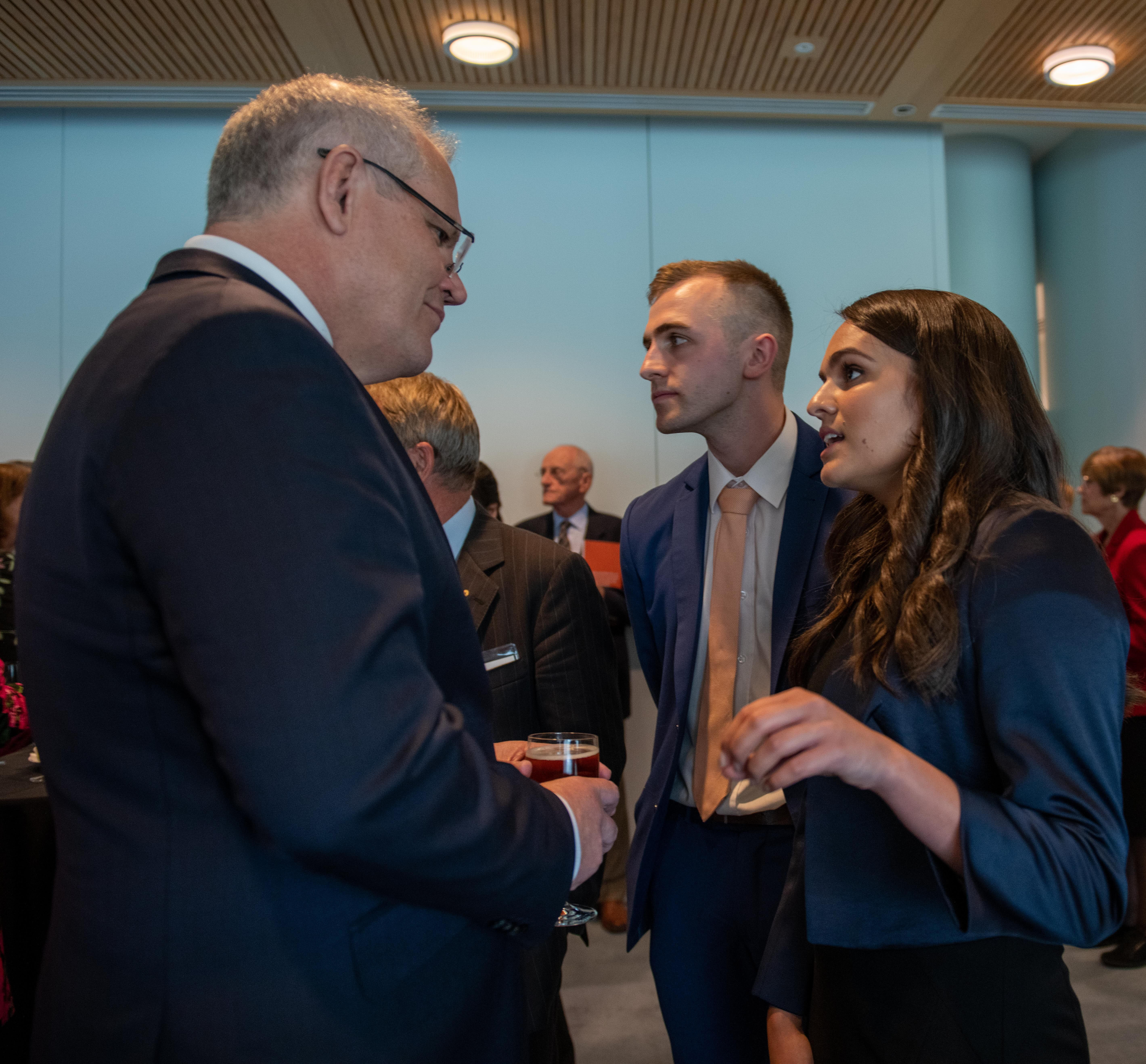 “I would like to see more Indigenous Australians having a say before consultation relating to reform even occurs,” she says.
“I would like to see more Indigenous Australians having a say before consultation relating to reform even occurs,” she says.

Ms D’Souza speaking with Prime Minister Scott Morrison. Source: Supplied
“I think that takes a lot of work in creating the right governing bodies to bring Indigenous people to the table and making it a culturally sensitive place to add comment to certain initiatives.”
Unlike in the US, Canada or New Zealand, Australia’s Indigenous peoples have never been addressed within the country’s constitution, something Ms D’Souza says “should have happened a long time ago”.
I would like to see more Indigenous Australians having a say before consultation even occurs.
She wants to see a “structure that recognises Aboriginal and Torres Strait Islander people as the first peoples of Australia and ensures that recognition is embedded”.
She also thinks there should be more focus on how that history is taught in schools.
“I think it’s time that, from a young age, kids need to really understand what occurred. Because that’s the first step to working towards reconciliation in Australia.”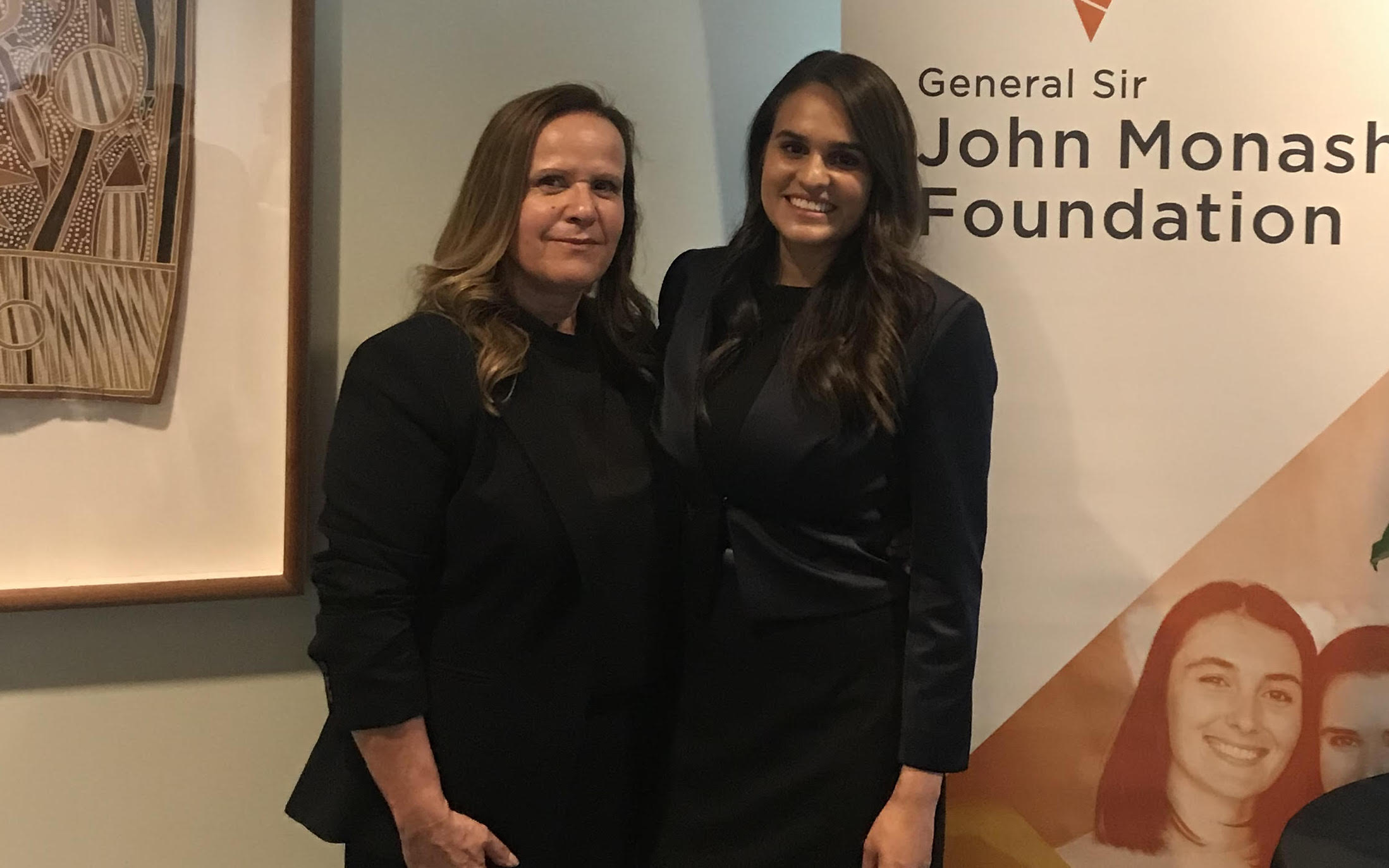 Asked about who has supported her along her education and career journey, Ms D’Souza says her biggest source of inspiration has always been her mum.
Asked about who has supported her along her education and career journey, Ms D’Souza says her biggest source of inspiration has always been her mum.

Ms D’Souza hopes to one day pursue a career in politics. Source: Supplied
“She came from a background of poverty and didn’t get to finish high school,” she says. “And now she’s worked her way up, despite having all the odds against her.”
Despite earning her spot on one of the world’s most elite postgraduate programs, Ms D’Souza says she too had to rely on self-determination.
“It was a bit of a blessing in a disguise that a couple of my teachers advised me not to go down the university pathway because I think that almost motivated me to prove them wrong,” she says.
“I think if it weren’t for my mum encouraging me to pursue university, I’m not quite sure I’d be going off to Harvard next year.”
Sandy Milne is a freelance journalist based in Perth.
National NAIDOC Week (8–15 November 2020) celebrates the history, culture and achievements of Aboriginal and Torres Strait Islander peoples.
Join SBS and NITV for a full slate of NAIDOC Week content. For more information about NAIDOC Week or this year’s theme, head to the official NAIDOC Week website.
#NAIDOC2020 #AlwaysWasAlwaysWillBe




